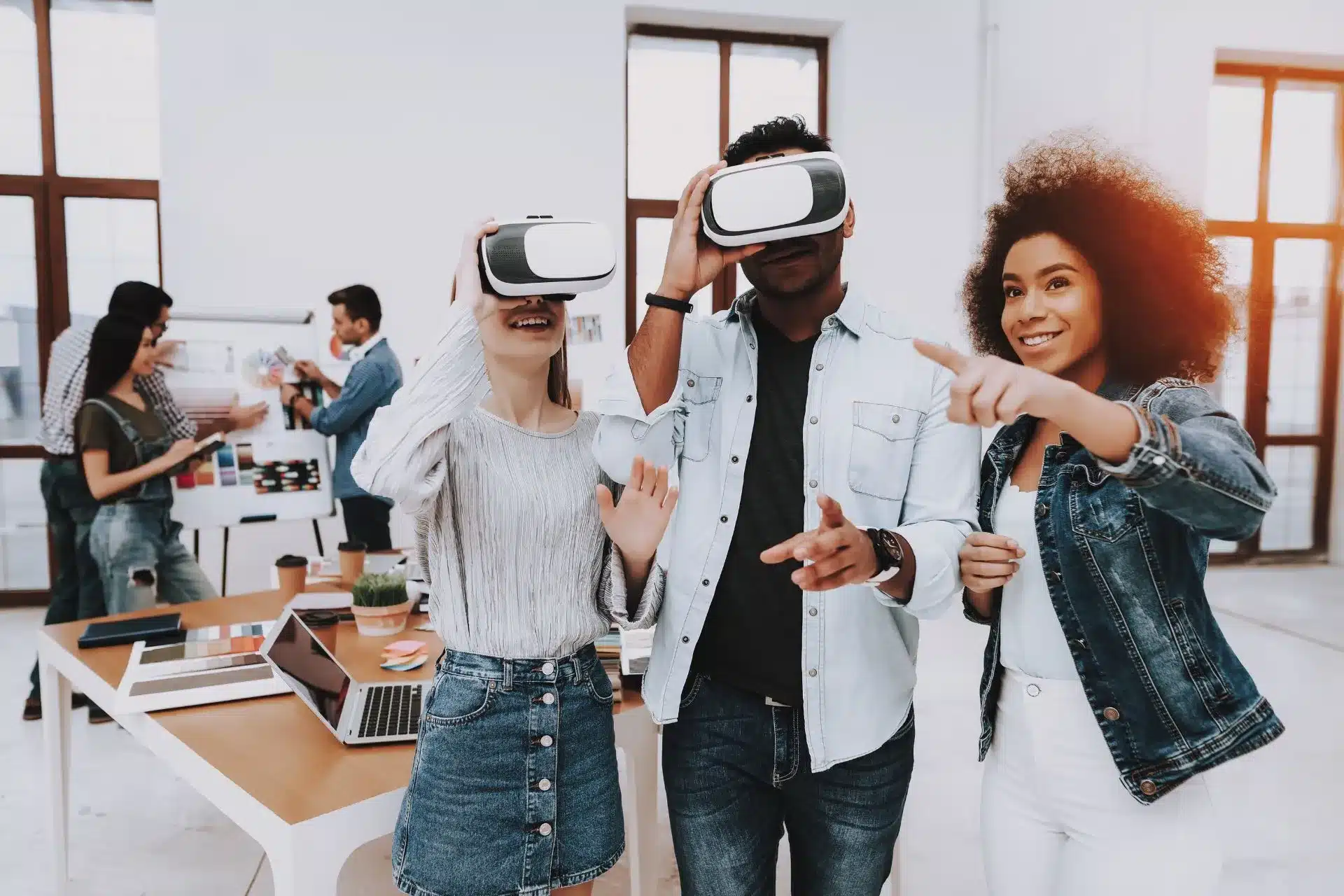In a world where mental health is increasingly recognized as a critical component of overall well-being, the quest for effective treatments and approaches is more vital than ever. Mental health, encompassing our emotional, psychological, and social well-being, affects how we think, feel, and act. It also influences how we handle stress, relate to others, and make choices. However, the journey to maintaining or improving mental health is often fraught with challenges, ranging from stigma and lack of awareness to inadequate resources. In this article, “Mind Matters: Exploring Innovative Approaches to Mental Health Care,” we delve into the exciting and evolving landscape of mental health care, highlighting breakthrough therapies, the transformative role of technology, and the integration of holistic practices. By weaving in real-life success stories, we aim to illuminate the path to better mental health and inspire hope in those seeking support. Join us as we explore the forefront of mental health care, where innovation meets compassion, and new possibilities emerge for mental wellness.
Innovative Therapies and Treatments
The landscape of mental health care is continuously evolving, with groundbreaking therapies and treatments emerging to offer new hope to those struggling with mental health issues. These innovations are reshaping our understanding of mental health care, providing more personalized and effective approaches.
1. Personalized Medicine in Mental Health: One of the most significant advancements in mental health care is the shift towards personalized medicine. This approach tailors treatment to the individual’s unique genetic makeup, lifestyle, and environmental factors. For instance, pharmacogenomics, the study of how genes affect a person’s response to drugs, is enabling clinicians to prescribe medications more effectively, reducing trial and error and enhancing treatment outcomes.
2. Virtual Reality Therapy: Virtual Reality (VR) therapy represents a paradigm shift in treating mental health disorders like PTSD, anxiety, and phobias. By immersing patients in a controlled, virtual environment, therapists can safely expose them to their fears and teach coping mechanisms in a safe, controlled setting. This technology not only makes therapy more accessible but also provides a powerful tool for therapists to customize scenarios tailored to individual needs.
3. Mindfulness and Meditation-Based Therapies: The ancient practices of mindfulness and meditation have found a modern application in mental health treatment. Techniques like Mindfulness-Based Stress Reduction (MBSR) and Mindfulness-Based Cognitive Therapy (MBCT) are gaining popularity for their effectiveness in managing stress, anxiety, and depression. These therapies help individuals become more aware of their thoughts and feelings, enabling them to manage negative patterns more effectively.
4. Digital Therapeutics: The rise of digital therapeutics, including mental health apps and online therapy platforms, is revolutionizing access to mental health care. These tools offer self-help techniques, guided therapy sessions, and support networks, making mental health care more accessible, especially in remote or underserved areas.
5. Integration of Art and Music Therapy: Art and music therapy have emerged as powerful tools in mental health treatment. These therapies use creative expression as a medium for healing, allowing individuals to explore their emotions and experiences through art or music. This approach has been particularly effective in treating children and adolescents, offering a non-verbal outlet for expression and communication.
Each of these innovative therapies and treatments offers a glimpse into a future where mental health care is more accessible, personalized, and effective. As research continues to advance, we can expect to see even more breakthroughs that will further enhance our ability to support mental health and well-being.

The Role of Technology in Mental Health
In the realm of mental health care, technology is playing an increasingly pivotal role, transforming how we approach, treat, and understand mental health issues. From mobile apps to AI-powered tools, technology is expanding the boundaries of what’s possible in mental health care.
1. Teletherapy and Online Counseling: The rise of teletherapy and online counseling has been a game-changer, especially during times when physical distancing is necessary. Platforms that offer these services provide flexibility, convenience, and a level of anonymity that can be comforting for many. They make mental health services accessible to those who might not have the time, resources, or comfort level to engage in traditional face-to-face therapy.
2. Mobile Health Apps: A plethora of mobile health apps are now available, offering tools for stress management, mindfulness, and cognitive behavioral therapy. These apps often include features like mood tracking, guided meditation, and interactive exercises. They are an excellent resource for people looking for daily mental health support and those who might not have access to traditional therapy.
3. Artificial Intelligence in Mental Health: AI is revolutionizing mental health care in various ways, from predictive analytics to chatbots that provide immediate, albeit limited, counseling services. AI can analyze data from a variety of sources to identify patterns that might indicate a mental health condition, potentially leading to earlier and more accurate diagnoses.
4. Virtual Reality for Therapy and Training: Virtual reality (VR) is being used not only for therapy but also for training mental health professionals. VR simulations can create realistic scenarios for therapists to practice their skills, enhancing their ability to provide effective care. For patients, VR can be used for exposure therapy, treating conditions like PTSD, anxiety disorders, and phobias in a controlled and safe environment.
5. Wearable Technology for Mental Health Monitoring: Wearables like smartwatches and fitness trackers are increasingly being used to monitor mental health. These devices can track physiological markers such as heart rate variability, sleep patterns, and activity levels, which can be indicators of mental health status. This data can provide valuable insights for both individuals and their healthcare providers.
Technology in mental health care is not a panacea, but it offers exciting possibilities. It breaks down barriers to access, provides new tools for treatment and self-care, and enhances our understanding of mental health conditions. As technology continues to evolve, its role in mental health care is poised to become even more significant, offering hope and support to those in need.
Integrating Holistic Approaches
The integration of holistic approaches in mental health care represents a shift towards a more comprehensive understanding of well-being. These methods emphasize the connection between mind, body, and spirit, offering a more rounded approach to mental health.
1. The Rise of Mind-Body Therapies: Techniques such as yoga, tai chi, and qigong are increasingly recognized for their mental health benefits. These mind-body practices combine physical activity with mindfulness, helping to reduce stress, anxiety, and depression, while enhancing overall well-being.
2. Nutritional Psychiatry: The field of nutritional psychiatry is gaining traction, exploring the link between diet and mental health. Research suggests that a healthy diet can play a key role in managing and preventing mental health disorders. This approach focuses on using food as medicine, encouraging dietary changes as part of a comprehensive treatment plan.
3. Nature Therapy: Also known as ecotherapy, nature therapy involves activities in natural settings as a tool for improving mental health. Activities like gardening, hiking, or simply spending time in nature have been shown to reduce symptoms of anxiety, depression, and stress.
4. Traditional Healing Practices: Many cultures have long-standing healing traditions, such as Ayurveda, Traditional Chinese Medicine, and Indigenous healing practices. These systems offer a wealth of knowledge and techniques that are being integrated into modern mental health care, providing a more culturally sensitive approach.
5. The Power of Community and Social Support: Social connections and community involvement play a crucial role in mental health. Support groups, community centers, and peer-to-peer networks are vital resources, offering support, reducing isolation, and fostering a sense of belonging.
By integrating these holistic approaches, mental health care is becoming more inclusive and effective, recognizing the diverse needs and preferences of individuals. This shift towards a more holistic view of mental health not only addresses specific mental health conditions but also contributes to the overall well-being and quality of life.

Real-Life Success Stories
The true impact of innovative mental health care can be best understood through real-life success stories. These stories not only inspire but also provide tangible proof of the effectiveness of various mental health treatments and approaches.
1. Overcoming Anxiety with Virtual Reality Therapy: John, a 30-year-old software engineer, struggled with severe social anxiety. Traditional therapy had limited success until he tried virtual reality therapy. VR sessions allowed him to face social situations in a controlled environment, gradually reducing his anxiety. Today, John confidently engages in social activities, a feat he attributes to VR therapy.
2. Finding Balance Through Mindfulness: Maria, a 45-year-old teacher, suffered from chronic stress and burnout. She discovered mindfulness-based stress reduction (MBSR), which transformed her life. Through regular mindfulness practice, Maria learned to manage her stress effectively, leading to improved mental and physical health.
3. A Journey from Depression to Wellness with Nutritional Psychiatry: Alex, a 22-year-old college student, battled depression for years. After consulting a nutritional psychiatrist, Alex adopted a diet rich in omega-3 fatty acids, whole grains, and vegetables. This dietary change, combined with therapy, significantly improved his mood and energy levels.
4. Embracing Traditional Healing for Emotional Healing: Lily, a 35-year-old nurse of Indigenous descent, explored traditional healing practices to cope with grief and loss. Engaging in cultural rituals and community support, she found a deep sense of healing and connection, aiding her emotional recovery.
5. Building Resilience through Community Support: David, a 50-year-old veteran, faced post-traumatic stress disorder (PTSD). He found solace in a peer support group, where sharing experiences and strategies for coping with PTSD helped him rebuild his life.
These stories highlight the diverse range of effective mental health treatments available today. They underscore the importance of personalized care and the power of innovative and holistic approaches in overcoming mental health challenges.
Having a Mental Health Plan is a path to achieving lasting emotional well-being. Integrating a comprehensive strategy is a good way to enhance many aspects of life, like mental health, cope with stress, and embrace a more fulfilling and joyful life of positivity and inner strength.
Conclusion
The journey through the evolving landscape of mental health care, as highlighted in “Mind Matters: Exploring Innovative Approaches to Mental Health Care,” reveals a world brimming with hope and possibilities. From the personalized precision of pharmacogenomics to the comforting realms of virtual reality therapy, the advances in mental health care are not just scientific triumphs but also beacons of hope for those grappling with mental health issues.
The integration of technology, the adoption of holistic approaches, and the inspiring real-life success stories we’ve explored underscore a crucial message: mental health care is advancing towards a future that is more inclusive, accessible, and effective. It’s a future where the stigma surrounding mental health is dismantled, and comprehensive care is a reality for all.
As we conclude, it’s clear that while challenges in mental health care persist, the strides made in innovative therapies, technology integration, and holistic approaches offer new avenues for healing and hope. The stories of individuals who have triumphed over their mental health struggles remind us that, with the right support and resources, recovery is not just a possibility but a reality.
In embracing these advancements, we open the door to a world where mental health is not just a conversation but a priority, where every individual has the opportunity to thrive in their mental well-being.



















